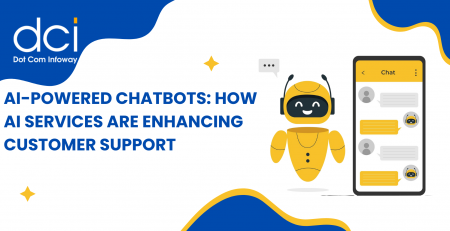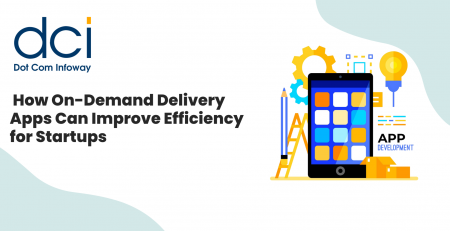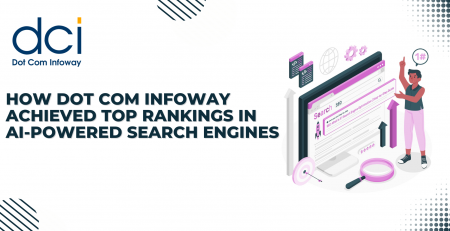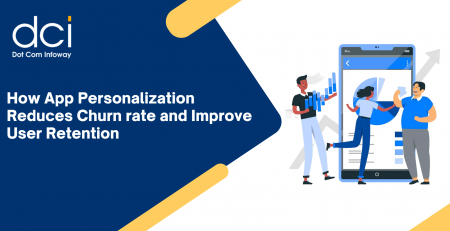Apple iOS 14: How It Impacts the App Industry?
Almost every major iOS software update has made waves in the app industry in recent years, and iOS 14 is no different. What’s certain is that it’s set to have a very significant impact on the way businesses do marketing, particularly when doing mobile advertising. And that’s bound to turn a lot of heads and even raised eyebrows from other major marketing platforms like Facebook. Furthermore, the app user experience will be greatly affected as well.
These are, obviously, primary areas in mobile app development and marketing, so it’s safe to say that this update is fraught with game-changers. We’ll discuss just why this is so by providing a general outline of how the iOS 14 update will affect the app industry.
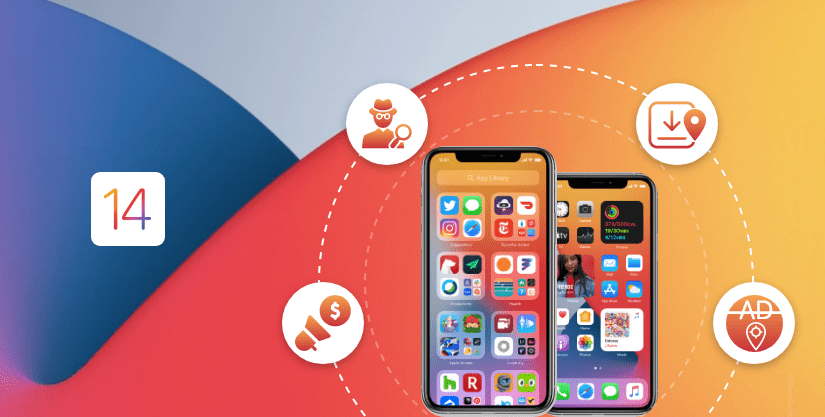
How Will iOS 14 Affect Ad Revenues?
This topic deserves to be discussed first because it’s possibly the most significant change that all marketers need to know. IDFA (Identifier for Advertisers) is actually at the dead center of this specific change. The iOS 14 changes in the IDFA, while it unlocks users’ ability to choose and control the ads that are shown to them, essentially makes advertising harder for everyone.
In fact, there’s no better way to illustrate the impact of iOS 14 on advertising than by looking at the estimated ad revenue decreases it will bring about. Experts are anticipating as much as a 40% decrease in ad revenues, and this just applies to the initial month that the update will be rolled out. Not all users promptly update their software, but this possibility has already been included once
The Changes in IDFA & App Store-Level Transparency and Control
Every app that the user chooses to install now triggers an opt-in and opt-out option once they are informed about the availability of IDFA in that platform. Included in this summary are other essential information on the app’s privacy practices. It is also viewable on the app’s description page and is completely self-reported.
App publishers are now also required to include their purposes for data processing in the said self-reports. This report will be revealed to the user via a pop-up, which will then give him the option to opt-in or opt-out. Once the user chooses the latter, the user’s IDFA will be inaccessible to the app developer or advertiser. Take note that users who opt-out will effectively make it prohibited for the publisher to perform any kind of identification attempt related to advertising on the said users.
These are the other, more or less, notable changes that advertisers should take note:
- The absence of an IDFA will hit ad campaigns a lot because advertisers will basically be driving blind. After all, there’s an absence of user data essential for optimal advertising. They will not be able to optimize their campaigns, know and target users based on behavior, or have control over a campaign’s recency.
- Due to limited access to IDFA, there’s an inherent risk of less relevant ads being shown to the users as well.
- User experience also directly benefits from user data acquired via the IDFA, so apps may now find it hard to conduct improvements centering on it. Or it could even lead to poor overall user experience and conflicts (that could even lead to an accidental violation of Apple’s policy). For one, scenarios such as when a user opts out after a pop-up but accepts basic ads outlined by the publisher’s third-party TFC (Transparency and Consent Frameworks) might actually trigger user identification.
- These changes are obviously not without their share of conflict that is more wide-ranging. Facebook has actually temporarily disabled the collection of IDFA in its own apps until Apple provides more guidance about the iOS 14 update.

Need Help with Your Mobile App Marketing?
Talk to our experts! We are an award-winning marketing agency with 10+ years of experience in promoting mobile apps.
How It Impacts App Installs and Geolocation?
App installs take the spotlight in this update because Apple will now notify registered ad networks every time ad campaigns produce a conversion. Whether this applies to users who opt-out remains unclear. Arguably, such a move places too much weight on only one metric, the app install, which is just one metric advertiser use to optimize their campaigns.
Geolocation, on the other hand, has also been affected since users can now also opt-out from sharing and showing their precise location every time they run an app that asks for it. Any opt-out in this regard is essentially permanent for it will not be asked again. Once this is the case, only the approximate geo-location of the user will be shared with that app. This is admittedly more of a positive move because users will now be allowed to choose whether they’ll reveal their exact location.
Tracking and Ad Limit Impact
In addition to Safari’s ITP, which block cross-domain tracking, users will now also be made privy to the companies that the said feature is blocking. This is more of a limiting change obviously since it makes it seem like all the companies blocked share the same user tracking intent. There’s more than one reason for tracking users for advertising purposes and most of them are relatively benign enough to warrant not being included in a list that appears to immediately paint all the companies included in a bad light.
Take note that Apple’s Limit Ad Tracking, which gave users the option to show IDFA tracking opt-ins and opt-outs, has already resulted in a substantial decrease in eCPM. This is only bound to become worse when iOS 14 becomes the majority since it makes these IDFA opt-out options the default setting.
Conclusion
Much like any significant change for the good or bad, one sure way to solve it is to simply adapt to the changes it brings. Ad solutions that center on privacy, for one, should be prioritized more in place that solely focuses on targeting identity. Another door is also open to universal user identification, which does not conflict with Apple’s policies. Facebook, as of this writing, is looking at new technology that will be able to perform just that.
No matter how huge an impact iOS 14 will seemingly have at the initial stages of its implementation, there’s really no room to doubt that the app industry will inevitably be able to bounce back from it. Active steps are already being taken, after all.


